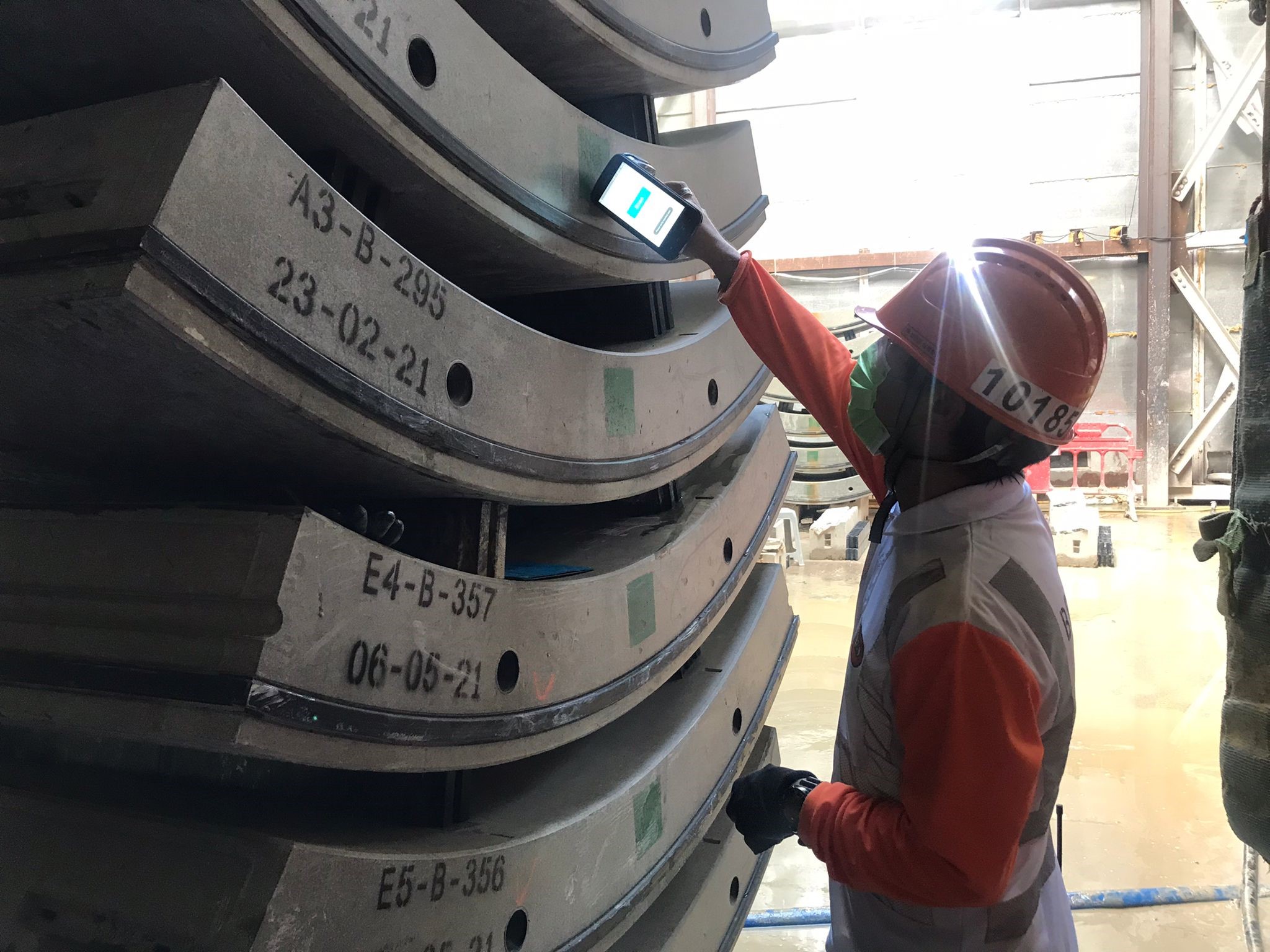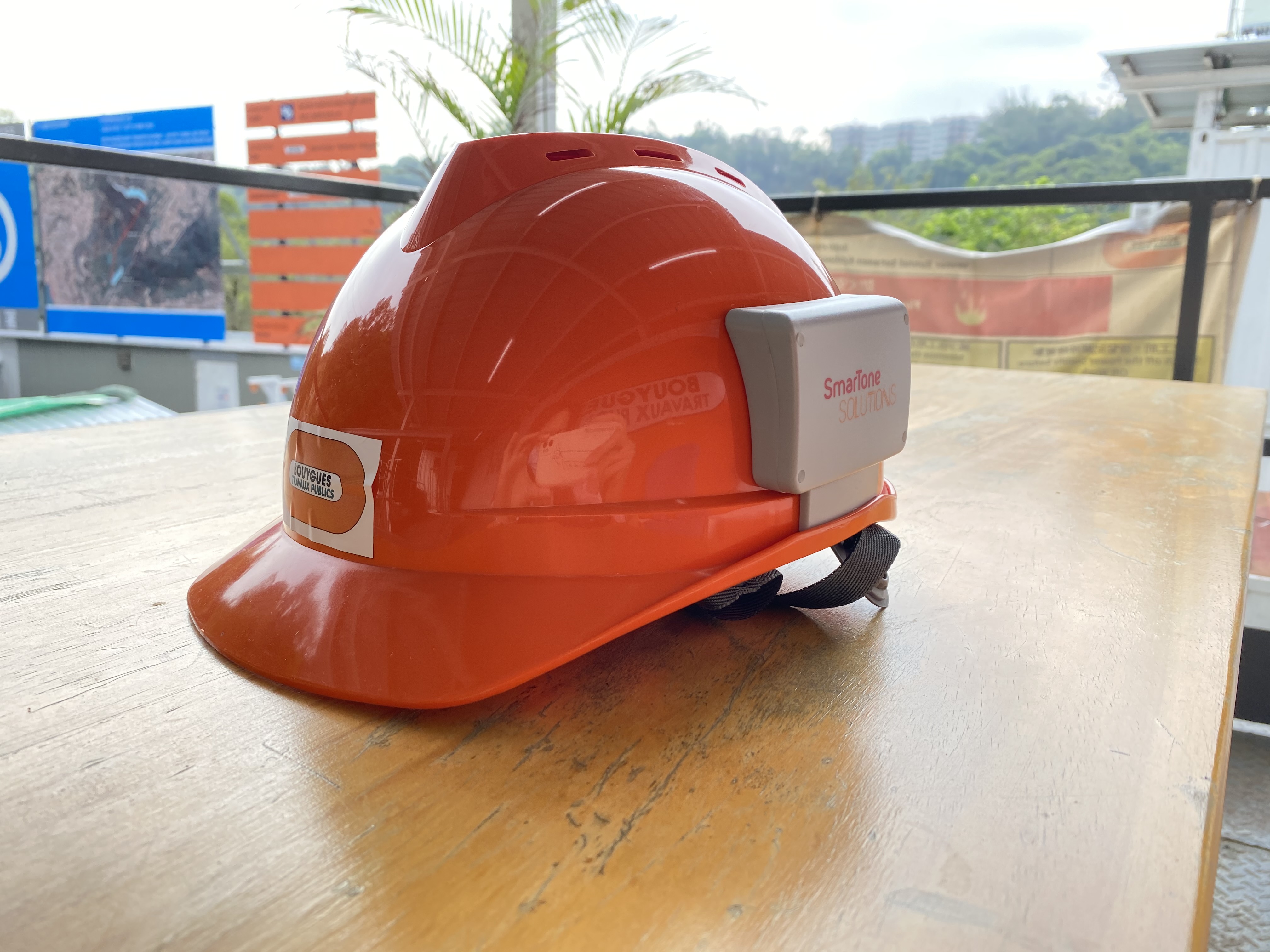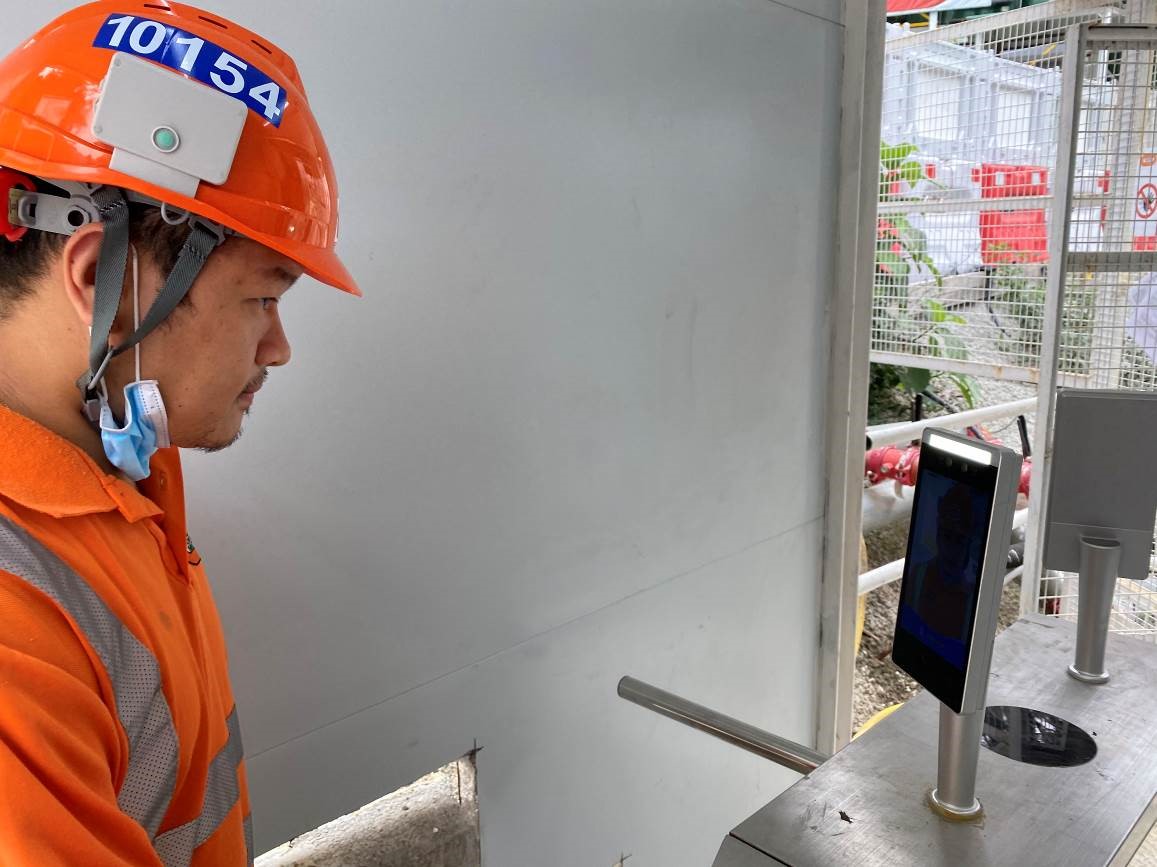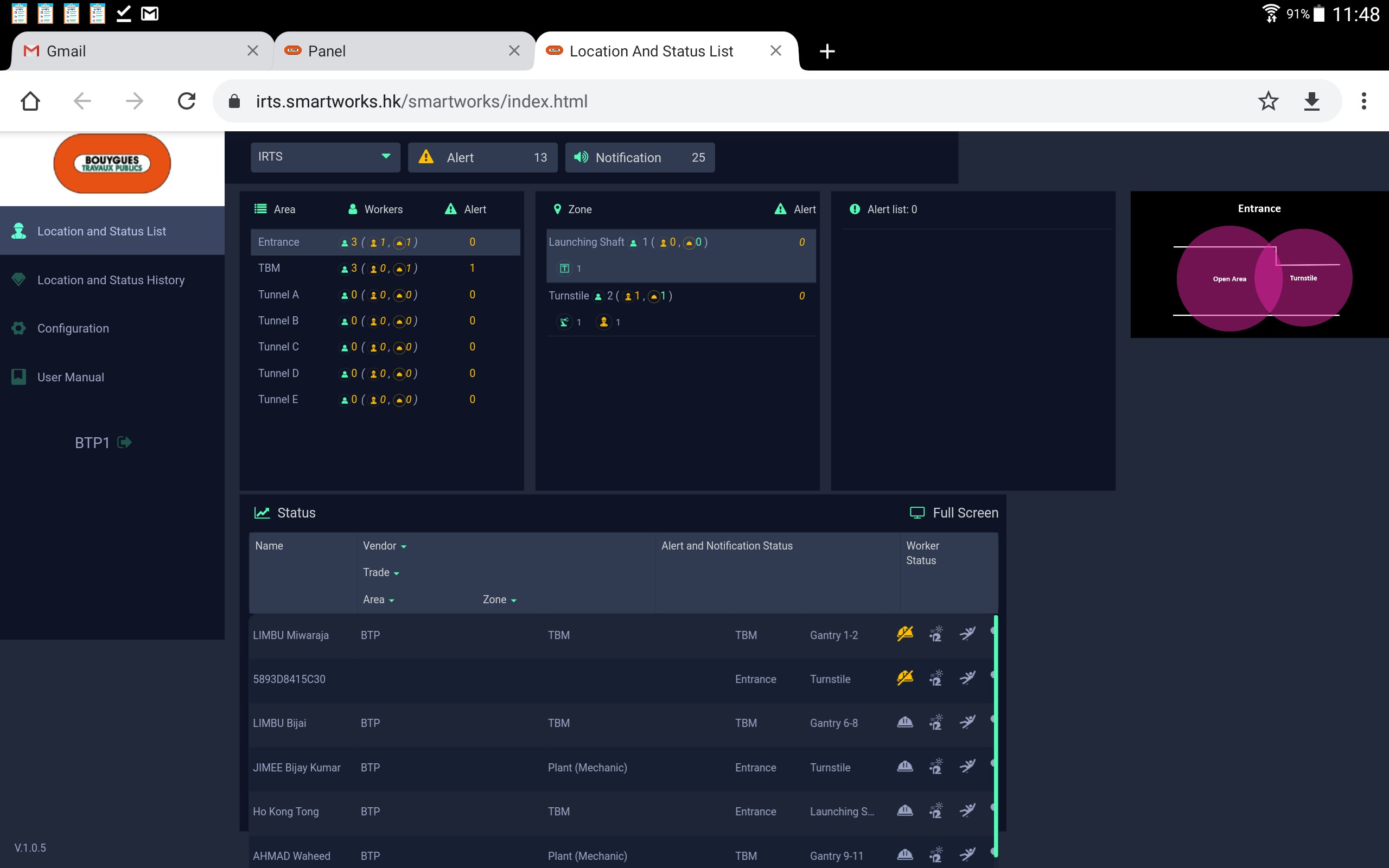Application of Technology
The project involved the use of more than ten thousand precast tunnel segments, which required a systematic quality control system to monitor the manufacturing, transportation, and installation processes, and to increase the efficiency of quality control. To achieve this, the project team adopted a wireless Radio-Frequency Identification (RFID) system that involved the installation of RFID tags on each precast tunnel segment. The RFID tag served as a unique, smart ID card for every precast component, allowing the project team to access detailed information of the precast segments by scanning the tag with a device. This system significantly reduced the time and complexity of document retrieval and was easy to operate, improving the quality management of the project and enhancing the efficiency of the tunnel project.
Tunnel construction requires working in confined spaces for extended periods and lifting a large number of tunnel segments. Therefore, the project team introduced innovative technologies to enhance site safety, such as the widespread use of smart safety helmets to monitor workers' physical conditions in real-time. With the use of facial recognition technology, the confined space work permit system was effectively implemented to ensure worker safety. On the other hand, the lifting equipment was equipped with QR codes that allowed real-time access to inspection certificates, enabling workers to use the equipment safely. Although occupational safety technologies such as smart safety helmets are now widely used in various projects, the IRTS project team was the pioneer of these innovative technologies to enhance occupational safety.




